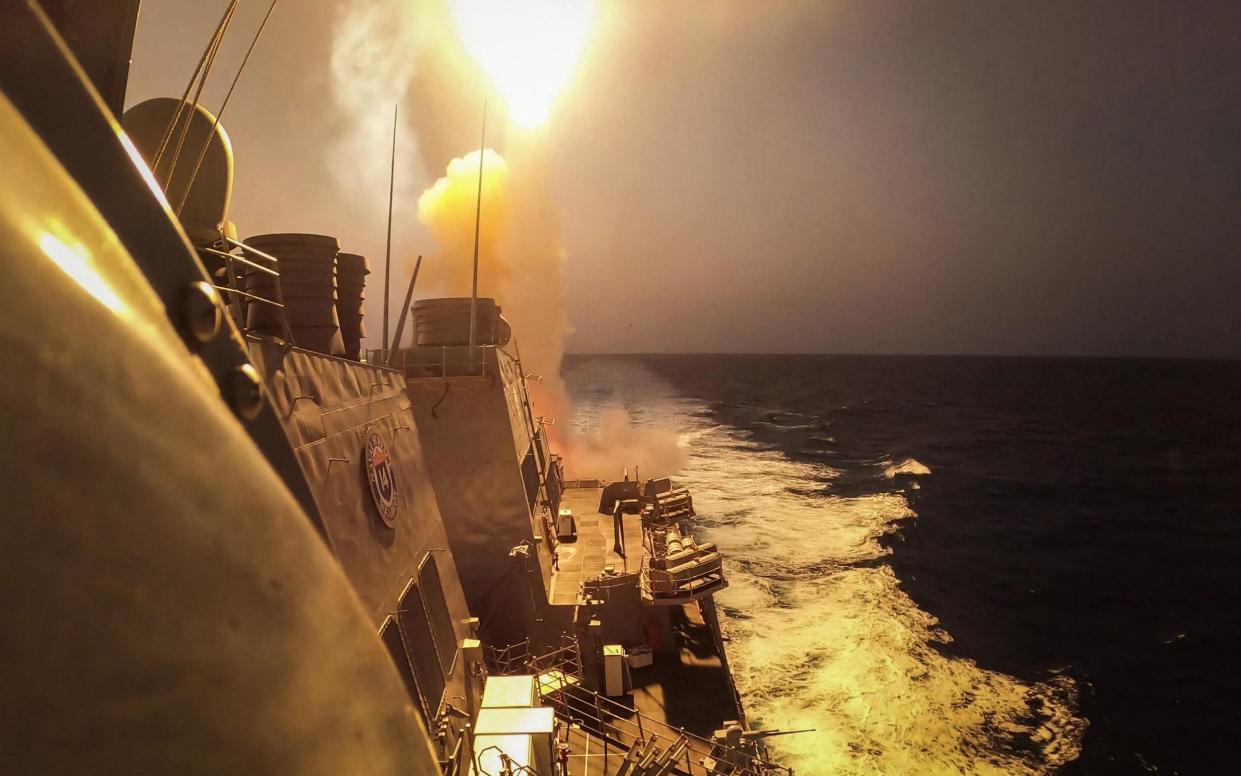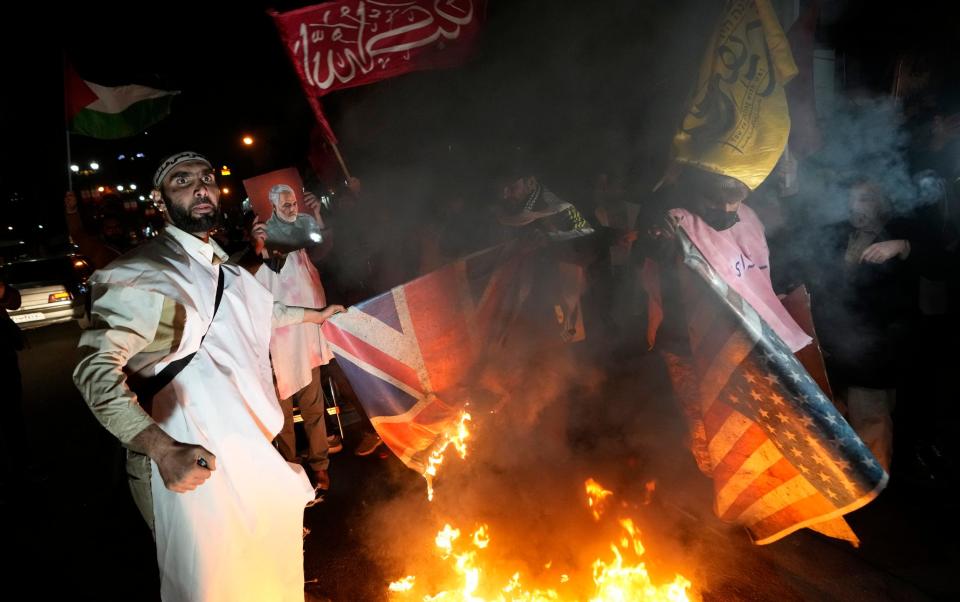US warship destroys Houthi radar site in Yemen

The United States carried out a second strike on the Houthis in the early hours of Saturday morning as Washington vowed to protect shipping from attacks by the Iran-backed group.
The USS Carney, a guided missile destroyer, used Tomahawk missiles to destroy a radar site in Sana’a, the US military said.
The Iran-aligned group threatened to retaliate for the strike, which came a day after dozens of American and British missiles and bombs hit Houthi targets.
“This new strike will have a firm, strong and effective response,” Nasruldeen Amer, a Houthi spokesperson, told Al Jazeera.
There were no injuries or “material damages” in the latest US strike, the official said.
Saturday’s missile strike was intended “to degrade the Houthis’ ability to attack maritime vessels, including commercial vessels”, US Central Command said.
Witnesses reported intense air activity above Sana’a, the Yemeni capital, with Houthi TV channel Al-Masirah reporting that the Al-Dailami airbase had been attacked.
In Sana’a, government employee Mohammed Samei said the attacks were an act of “brutal aggression” and marked a new stage of a war Yemen had endured for 10 years.
Hussein Kabsi, a retired government employee, said supporting the Palestinians was a “religious and moral duty”.
“Our stance is unwavering, we will continue to stand with our brothers in Palestine and Gaza until victory and until all Palestinian land is liberated – not just Gaza,” he said.

Mohammed Abdulsalam, a Houthi spokesperson, said the strikes had no significant impact on the group’s ability to prevent Israel-affiliated vessels from passing through the Red Sea and the Arabian Sea.
Later on Saturday, Houthi-linked sources claimed a third strike had hit the port city of Hodeida.
A military source allied with the rebels told the AFP news agency that a missile launch site on the outskirts of the city was hit, adding that it was unclear whether the strikes came from the sea or the air.
The US-UK strikes have been seen as a major escalation in the war between Israel and Hamas, and have raised fears of a further expansion of the conflict.
Hans Grundberg, the UN special envoy for Yemen, on Saturday urged maximum restraint by all parties involved in Yemen, warning of an increasingly uncertain situation in the region.
Earlier on Saturday, Joe Biden said the US had delivered a private message to Iran about the Tehran-backed rebels responsible for attacking commercial shipping in the Red Sea.
“We delivered it privately and we’re confident we’re well-prepared,” the US president said.
Mr Biden, whose administration removed the Houthis from a State Department list of foreign terrorist organisations in 2021, was asked by reporters if he felt the term “terrorist” described the movement now. “I think they are,” he said.
The Pentagon said it was confident strikes by American and British forces on Thursday had harmed Houthi capability.
Satellite images released on Saturday by imaging firm Maxar showed destroyed buildings and small craters in several locations believed to have been targeted by the US and UK in Yemen.
John Kirby, the White House spokesperson, said on Friday the initial strikes had hit the rebels’ ability to store, launch and guide missiles or drones, which the group has used to threaten shipping.
He said Washington had no interest in a war with Iran.
Mr Kirby told MSNBC: “We’re not looking to escalate and there’s no reason for it to escalate beyond what happened over the last few days.
“We know that Iran supports the Houthis. We know that they’re supplying them with the missiles and the drones, the same things they’ve used to attack shipping, and we have made it very clear Iran should stop that support.”

